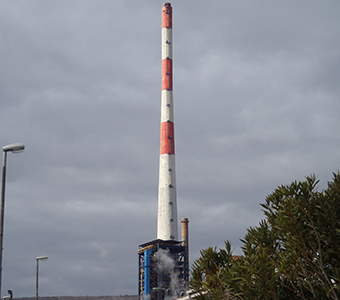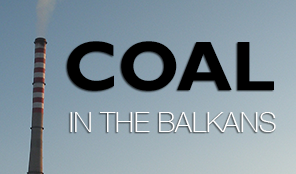The Plomin C coal power plant would bring higher social costs than benefits and is highly sensitive to changes in operational costs, so it is not recommended to continue with the project, according to a new economic analysis [hr, pdf] commissioned by Zelena akcija/Friends of the Earth Croatia and carried out by the Society for Sustainable Development Design (DOOR) using European Commission methodology.[*]
In spite of the fact that the project has been promoted by publicly owned company Hrvatska Elektroprivreda (HEP) for at least five years already, there is a remarkable lack of official economic data about the project and its risks in the public sphere and the analysis’ authors hope that it will open up the debate.
From the point of view of potential strategic partner Marubeni, the project would be made financially feasible by guaranteeing that HEP would buy off a certain percentage of the electricity at a guaranteed price. This is likely to be in conflict with EU state aid rules and it remains to be seen how this will be addressed.
Looking from the point of view of the wider society, the economic analysis shows that even if not including external costs such as health costs, the project is highly risky and is unfeasible in the following cases:
- an increase in operational costs by 35% compared to the basic scenario,
- a 2-year delay in construction along with an increase in the price of emissions allowances as foreseen in the PRIMES energy model used in the European Commission’s Energy Roadmap 2050 [pdf, pg 37],
- including external costs as defined by the ExternE project.
The risk of an increase in operating costs of at least 35% compared to the base scenario is very real, as the analysis used the fixed operational costs from the EU’s Strategic Energy Technologies Information System (SETIS), while the EIB’s estimates are considerably higher. Also, the current CO2 price was used, whereas a significant increase is expected over the lifetime of the project. Coal costs likewise vary significantly over time.
Plomin C and energy policy more widely are a test for Croatia’s new government, which will show whether it is able to recognise the trends playing out across the EU and ensure the transformation of Croatia’s energy system. Zelena akcija has welcomed the new Croatian government’s “temporary moratorium” on building Plomin C, but believes this analysis shows that it is necessary to permanently withdraw from the idea.
The analysis is available (in Croatian) here [pdf].
Notes
* The analysis was carried out using official data and where this was not available, estimates by relevant international institutions were used. The methodology is that laid out in the European Commission’s Implementing Regulation 2015/207 from 20 January 2014 [pdf], the EC’s guide to cost-benefit analysis for investment projects [pdf] for the period 2014-2020 and 2013 EIB guidelines for the economic valuation of projects [pdf].
Never miss an update
We expose the risks of international public finance and bring critical updates from the ground – straight to your inbox.
Theme: Energy & climate
Location: Croatia
Project: Plomin coal power plant, Croatia
Tags: Plomin | analysis | coal | economic feasibility | health | pollution | state aid


